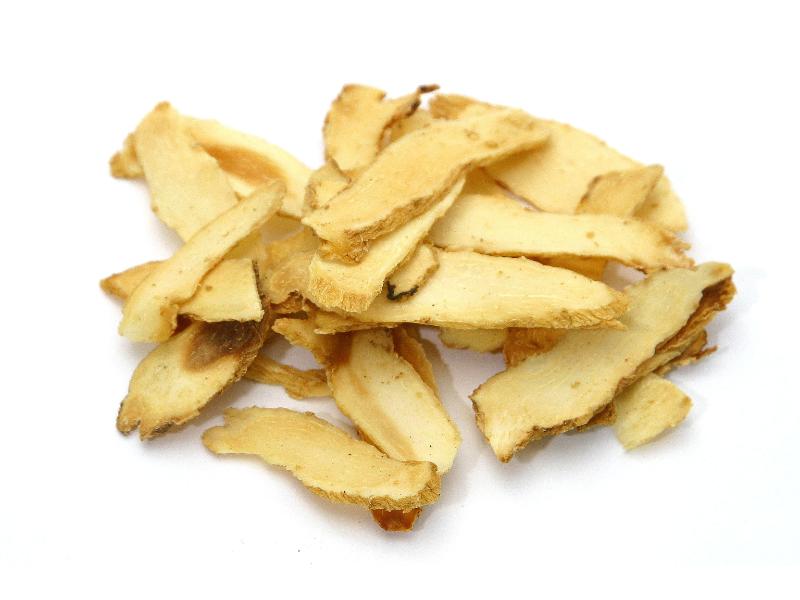Search in medicinals
Polygonati Odorati Rhizoma
Solomon’s seal [root]
玉竹 〔玉竹〕 yù zhú

Alternate Chinese names: 萎香 wěi xiāng; 葳参 wēi shēn; 玉朮 yù zhú; 明玉竹 míng yù zhú; 萎蕤 wěi ruí; 葳蕤 wēi ruí
Kingdom: Plant
Origin in PRC Pharmacopoeia: Polygonatum odoratum (Mill.) Druce. (PRC Pharmacopoeia)
Origin in unofficial sources: Polygonatum odoratum (Mill.) Druce*; Polygonatum macropodium Turcz.; Polygonatum involucratum Maxim.; Polygonatum inflatum Komar.; Polygonatum officinale All.; Polygonatum odoratum (Mill.) Druce var. pluriflorum (Miq.) Ohwi
Use: Medicinal
Category: Supplementing agents / Yīn-supplementing agents
Properties: Sweet; slightly cold.
Channel entry: Lung and stomach channels.
Actions and indications:
- Nourishes yīn and moistens dryness: Lung yīn vacuity.
- Engenders liquid and allays thirst: Damage to liquid in febrile disease; dispersion-thirst.
- Additional uses: Yù zhú may be used for yīn vacuity with external contraction because it nourishes yīn without constraining evil. For yīn vacuity with externally contracted wind-heat, combine with Bò hé (薄荷 Menthae Herba, mint), Cōng bái (葱白 Allii Fistulosi Bulbus, scallion white), and Dàn dòu chǐ (淡豆豉 Sojae Semen Praeparatum, fermented soybean1).
Dosage and method: Oral: 10–15g in decoctions.
Warnings: Contraindicated in spleen vacuity with damp phlegm.
Product description: The dried rhizome is cylindrical and slightly shrunken, with sparse branches of differing length. Its overall length can be as much as 40 cm but is usually sold broken into 5–15 cm lengths. The diameter is about 1 cm. The exterior surface is a pale, yellowish brown and has distinct fine annular nodes 0.3–1 cm apart and bears the scars left by fibrous roots. It is hard when dry, but when affected by damp it softens and becomes supple. It is cut into longitudinal slices, which are pale yellow, horny and semitranslucent.
Quality: Long soft fat rhizomes pale in color, with a sweet flavor are the best.
Production area: Jiāngsū, Zhèjiāng, ānhuī, Húnán, Guǎngdōng, Guǎngxī, Yúnnán, Sìchuān.
Etymology: Yù zhǔ 玉竹, literally jade bamboo,
apparently reflects the nodes on the surface of the rhizome and the jadelike appearance of the dried agent.